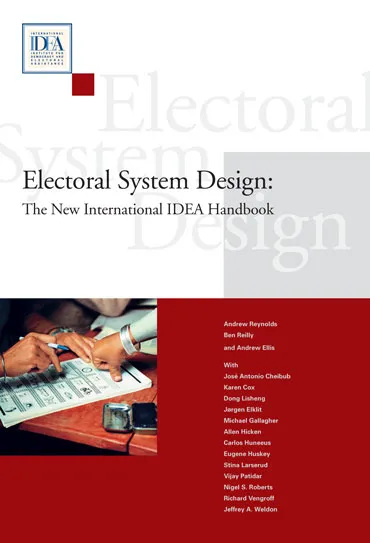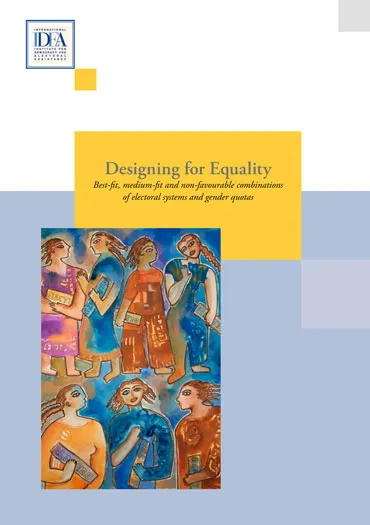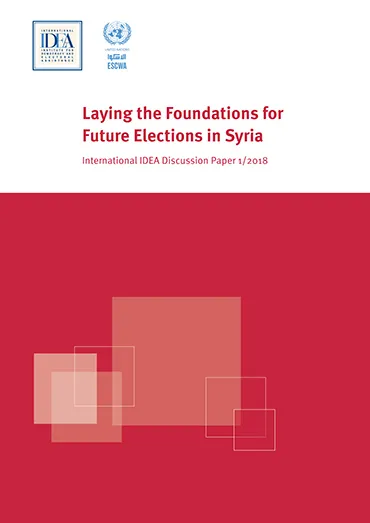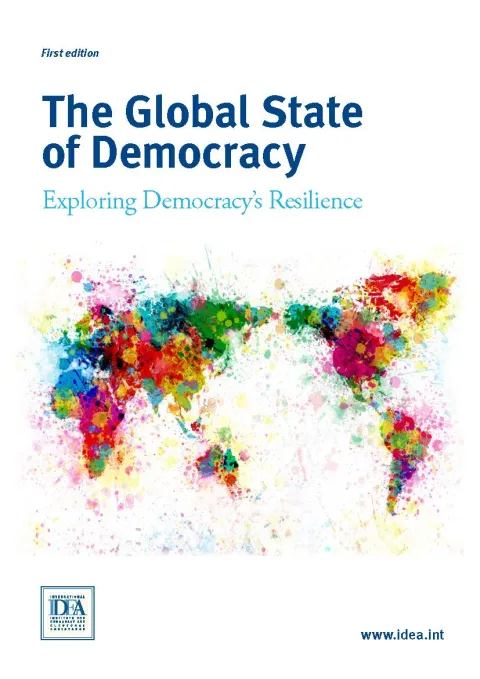Best Electoral System Test
About
|
The Best Electoral System Test (BEST) allows those involved in the debate on electoral system design to explore the characteristics of twelve common electoral systems in an interactive way. Users can set their priorities for 16 properties on a scale and immediately see a list of best matching electoral systems. The choice of an electoral system is one of the most important institutional decisions for any democracy. New democracies must choose an electoral system, while in established democracies political crisis may lead to momentum for electoral system change or campaigners for political reform may attempt to put electoral system change onto the agenda. |
 |
| How important is it that the electoral system... |
Importance ⓘ Scale 0 – 10
|
Explanation | |
|---|---|---|---|
| 0 |
Printing costs depend on the number, size, colour and quality of ballot papers needed to carry out the elections. In cases where money is scarce, it is important to keep printing costs in mind when designing the electoral system.
|
||
| 0 |
Descriptive representation refers to the idea that candidates in democratic elections should be elected to represent ethnic, religios, gender, and other majority/minority groups, rather than the population at large. According to this idea, an elected body should resemble a representative sample of the voters they are meant to represent concerning outward characteristics.
|
||
| 0 |
Geographic representation refers to representation of all parts of the country: north/south, east/west, urban/rural etc. In countries where the population identifies by region, it may be important to choose an electoral system which allows people to choose representatives from their own geographic area. On the other hand, it may be important to choose an electoral system that helps move away from regional fiefdoms by allowing/encouraging representation not based on geography.
|
||
| 0 |
Individual accountability refers to the possibility for voters to identify, nominate, vote for and remove individual representatives from the legislature, as opposed to entire parties or governments only.
|
||
| 0 |
Government accountability refers to the possibility for voters to change governments if they are unhappy with their preformance.
|
||
| 0 |
Electoral systems with single member districts always require boundary delimitation to be carried out. Electoral systems with multi member districts sometimes use boundary delimitation and sometimes reapportionment (increasing or decreasing the number of seats in a district based on census figures or other requirements). Boundary delimitation is often costly and sometimes the basis of conflict relating to claims of gerrymandering - trying to draw boundaries to favour one group over another.
|
||
| 0 |
Strategic voting refers to the act of casting a vote for someone other than the the voters first preference in order to prevent an undesirable outcome.
|
||
| 0 |
Wasted votes are votes that are not counted towards the election of a candidate.
|
||
| 0 |
Women´s representation is facilitated in party centred systems with large districts and high party magnitude.
|
||
| 0 |
To ensure transparency and increase trust in the system, it is important that voters understand how votes are translated into seats, that it is done in an intuitive and credible way.
|
||
| 0 |
Some electoral systems require voters to make multiple choices, rank order or read while others only require a mark to be made next to a picture or a logo. Especially in countries where illiteracy is a problem, it may be important to consider the ease in which voting itself is carried out, to ensure an inclusive process.
|
||
| 0 |
Voter turnout is affected by the electoral system as voters tend to turn out when their vote is likely to make a difference. Either in tight races in single member districts or when the system counts all votes in the country or in a large part of the country towards the election of the next candidate.
|
||
| 0 |
Linkages between voters and representatives may be strengthened when the voter knows and has access to his/her representative.
|
||
| 0 |
Pork barrel politics refers to the practice of representatives spending public funds in a particular constituency with the aim of increasing chances for reelection.
|
||
| 0 |
An effective opposition is one which has sufficient representation to provide a counterweight to a governing party or coalition, has reasonable future election prospects, and is not internally divided.
|
||
| 0 |
Small extremist parties at the end of the political spectrum will have a greater chance of being represented in proportional systems, unless the party’s electoral support is geographically very concentrated.
|
||
| System | Score |
Score relative to "ideal system" ⓘ The "ideal system" would be one that perfectly matches all criteria and priorities. Such an ideal electoral system does not exist for most scenarios and available sytems only come close to a varying degree.
|
|---|---|---|
| List PR - closed lists: | - | - |
| List PR - open lists: | - | - |
| FPTP: | - | - |
| TRS: | - | - |
| AV: | - | - |
| STV: | - | - |
| SNTV: | - | - |
| BV: | - | - |
| PBV: | - | - |
| LV: | - | - |
| MMP: | - | - |
| Parallel: | - | - |
Related publications
Submit feedback
Submit questions or comments about the Data or Tool
How did you find out about this? What do you like about it? What did you expect but did not find in using the Data or Tool?
To see how we handle your personal data, please read our Privacy Policy.




